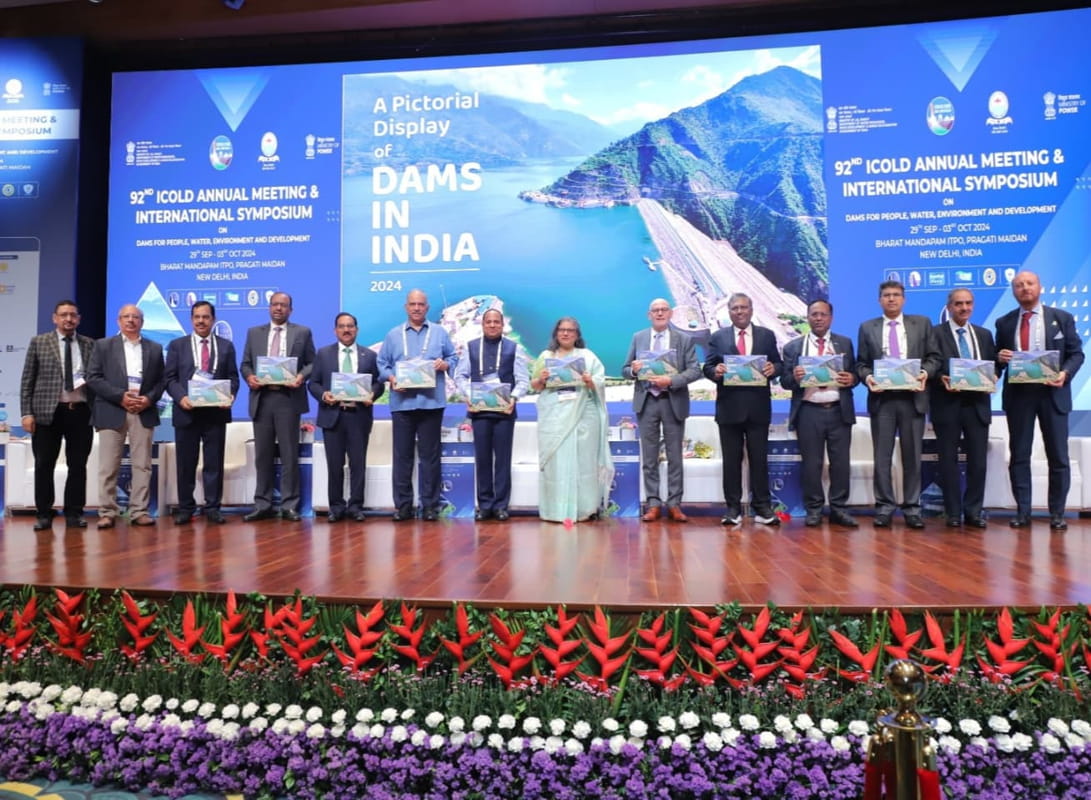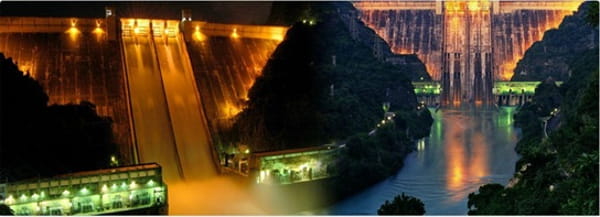
5th International Commission on Large Dams (ICOLD). | NBM Media.
The International Commission on Large Dams (ICOLD) was established in 1928 with its head office in Paris, France. The Indian National Committee on Large Dams became a member of the ICOLD in 1930. At present, ICOLD has 107 countries, including India as its members. Each member country exercises one vote during elections in the General Assembly held every year in different countries.
ROLE OF THE INTERNATIONAL COMMISSION ON LARGE DAMS (ICOLD)
The International Commission on Large Dams (ICOLD) leads the profession in ensuring that dams are built safely, efficiently, economically and without detrimental effects on the environment.
ICOLD provides a forum for the exchange of knowledge and experience in dam engineering. Its aim is to encourage advances in the planning, design, construction, operation and maintenance of large dams and their associated civil works, by collecting and disseminating relevant information and by studying related technical questions.
29 technical committees of the ICOLD consist of more than 600 experts from different countries thatwork on various aspects of dams, and bring out detailed technical publications known as ICOLD Bulletins.

Bhakra Dam, night-time view
INDIA GETS ELECTED
In a major diplomatic success, a highly respected and accomplished expert from India, Mr. Devendra Kumar Sharma, has won a hard fought election to the post of President of ICOLD on 20th May 2025 in Chengdu, China, during the General Assembly of the 93rd Annual General Body Meeting and 28th Congress of ICOLD. In its long history of 95 years as a member of the ICOLD, it is for the second time that an Indian has been elected as President of the ICOLD. Mr. C.V.J. Varma was the first Indian to be elected President from 2000-2003.
Mr. Devendra Kumar Sharma is Chairman of the Himachal Pradesh Electricity Regulatory Commission and a Member of the National Security Advisory Board of India. He was earlier elected as Vice-President in 2019. In the past, Mr. Sharma also chaired the Asia Pacific Group of the ICOLD. He was also co-chair of the “World Declaration on the Role of Dams for Energy Transition and Climate Change Adaptation”. He has also made significant contributions to the ICOLD Technical Committee on “Sedimentation of Reservoirs” during the past decade.
Mr. Sharma succeeds the French expert Mr. M. Lino as President, after defeating an American candidate in the election. ICOLD has traditionally been the preserve of Western and advanced countries, with the rare exception of two Presidents from Brazil, one from Burkina Faso and one from China.
India’s second time presidency is highly significant for the following reasons:
i) It reflects an acceptance of India’s capabilities in the construction of dams, ranging from technological strength to meeting environmental standards to addressing humanitarian aspects of large dams.
ii) It reflects the importance of clean hydropower in India’s energy mix, being the fifth-highest installed hydroelectric power capacity globally estimated at over 47000 MW or over 12% of total power generation. India aims to increase aggregate hydropower capacity to 67000 MW by 2031-32. Besides hydropower, there has been a rapid growth in renewable energy capacity in India, which now accounts for over 40% of total installed electricity capacity, well ahead of its commitments under the Paris Climate Accord.
iii) India’s election is a vindication of its concerns over China’s plans to build a mega dam on the Brahmaputra River in Tibet close to the Indian border.
iv) There has been no impact on the election results of India’s long overdue decision to keep the outdated Indus Waters Treaty with Pakistan in abeyance after the Pahalgam terrorist attack, as evidenced by the support received by India in the election.
VISION HIGHLIGHTS
After his election, Mr. Sharma stated that he brings a unique perspective to ICOLD given his expertise in the construction of dams and hydroelectric projects and active service in different Government departments in India, both at the state and central level. Mr. Sharma announced an ambitious agendaand affirmed his intention towork on the safety of the dams in all the member countries.
PROFESSIONAL EXPERIENCE
Mr. Sharma has more than 43 years of experience in energy and water resources sectors in India and abroad, including on the Indus Waters. He has been Chairman of the Bhakra Beas Management Board (BBMB), Ministry of Power, Government of India, where he was responsible for managing four dams and six power houses with an aggregate capacity of 2919 MW, and 3705-kilometre long 400 KV and below transmission system. Among his many achievements has been optimising water releases from the Bhakra Dam during the monsoon period. Mr Sharma has also served as Managing Director of Himachal Power Corporation Ltd. where he was responsible for 22 hydroelectric projects in different phases of development. He has published more than 50 technical papers in national and international journals and conferences.
NatStrat is particularly pleased that one of its contributors has been elected as President of the ICOLD. Mr. Sharma had published an opinion piece with NatStrat titled “Rethinking the Indus Water Treaty: A Critical Review of a Sustainable Framework” in September 2023.
(Exclusive to NatStrat)